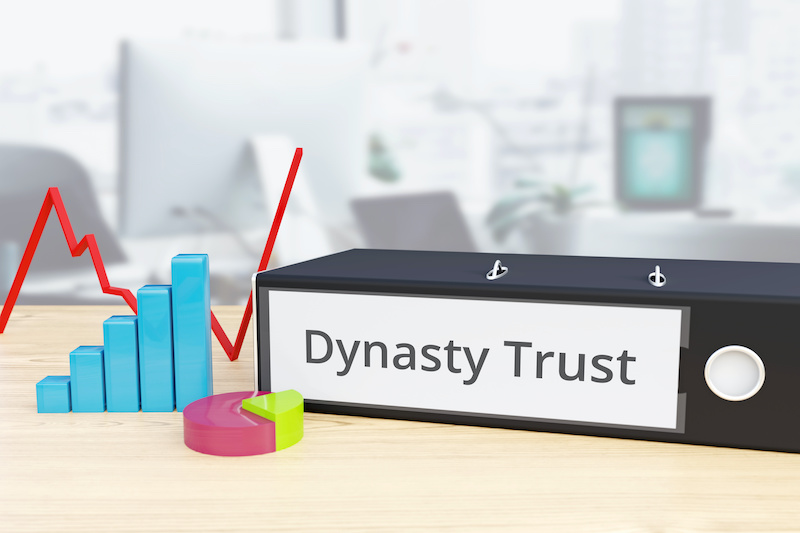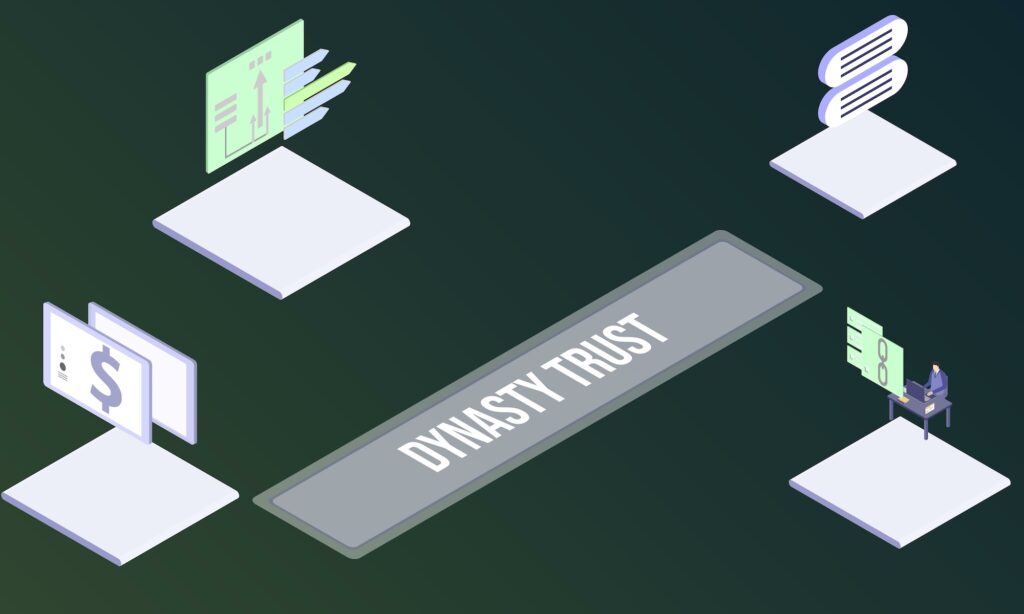
When people create estate plans, they typically focus on distributing their money and property to loved ones. For those interested in multigenerational wealth transfer, consider dynasty trusts.
What are Dynasty Trusts?

Dynasty trusts offer tax minimization and asset protection benefits of other types of trusts. However, unlike a trust ending with outright distributions, dynasty trusts span multiple generations. AKA as a perpetual trust, a dynasty trust could theoretically last forever. Because the trust could last for many years, and no one can change the rules, set up dynasty trusts with great care.
How Do Dynasty Trusts Work?

A dynasty trust starts the same way as any other trust. The trust’s creator (i.e., the grantor) transfers money and property into the trust. They do so during their lifetime or at the time of their death, in which case the trust is a testamentary dynasty trust. Regardless, as an irrevocable trust, once someone funds dynasty trusts, it is set in stone. No one can revoke it. And the rules the grantor sets for the trust can only be altered under certain state statutes governing trust modifications.
Who Should Serve as Trustee of Dynasty Trusts?

One role that the grantor must seriously consider is who will act as the trustee. The grantor of a dynasty trust must name an independent trustee. This includes a bank or trust company, to serve in this role, because they can administer the trust for as long as it lasts.
While it is possible to choose a beneficiary of the trust to serve as the trustee, this raises potential tax and creditor protection issues. A beneficiary-controlled trust can have income and estate tax consequences depending on the terms of the trust and the scope of the beneficiary’s powers. A beneficiary’s ability to control the trust affects the degree of asset protection that the trust provides the beneficiary. Also, it risks family wealth to misappropriation. In addition, a corporate trustee, like the dynasty trust, has an indefinite legal life, allowing for uninterrupted administration across generations. Corporate trustees typically charge an annual fee based on the amount of money and property in the trust.
Creating Your Dynasty

If you think a dynasty trust might be right for you, the next step is to speak with an estate planning attorney at our firm. Among the items to be discussed are the selections of the trustee and beneficiaries, tax and creditor protection considerations, state laws on perpetual trusts, and how a dynasty trust fits into your overall estate plan. To start planning your legacy today, please contact us.
About Skvarna Law Firm in Glendora and Upland, California

Let a skilled attorney assist with your estate plan. Contact us today to learn about your options (909) 608-7671. We operate offices in Glendora and Upland, California. We provide legal services for individuals living in San Bernardino, Los Angeles, Orange, and Riverside Counties. This includes the cities of Upland, Ontario, Rancho Cucamonga, Fontana, Colton, Rialto, Chino, Chino Hills, Glendora, Claremont, Montclair, Pomona, La Verne, San Dimas, Azusa, Covina, West Covina, Diamond Bar, Walnut, La Puente, Corona, Norco & Mira Loma. Visit SkvarnaLaw.com to learn more.


